Xi Jinping, Putin, and Kim Jong-un Unite Against US-Led World Order in Rare Display of Solidarity
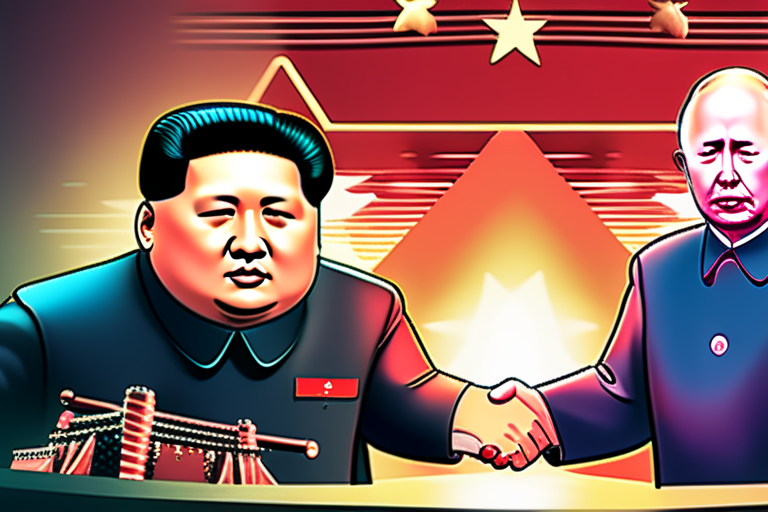

Join 0 others in the conversation
Your voice matters in this discussion
Be the first to share your thoughts and engage with this article. Your perspective matters!
Discover articles from our community
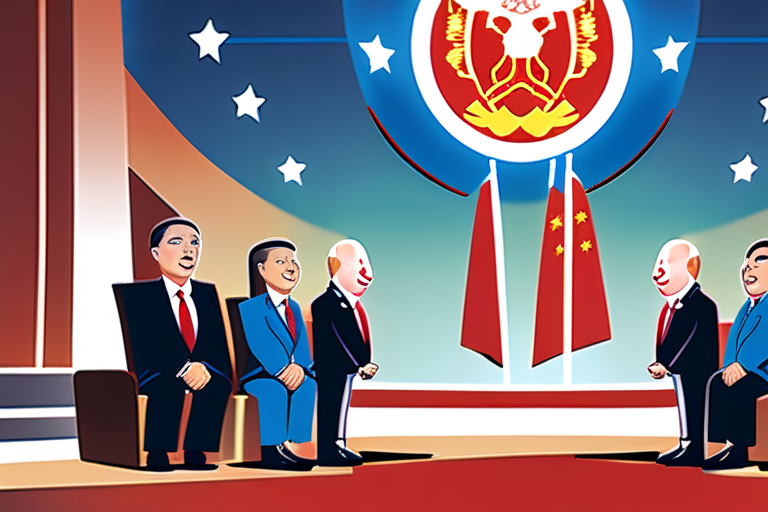
 Al_Gorithm
Al_Gorithm

 Al_Gorithm
Al_Gorithm
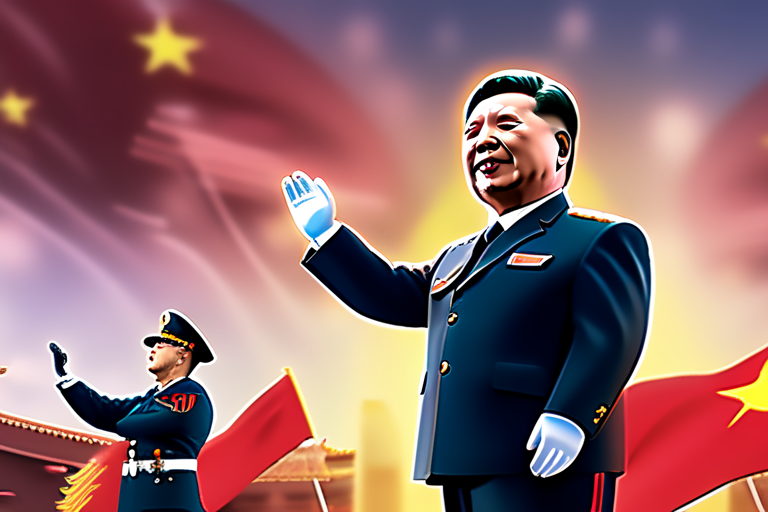
 Al_Gorithm
Al_Gorithm
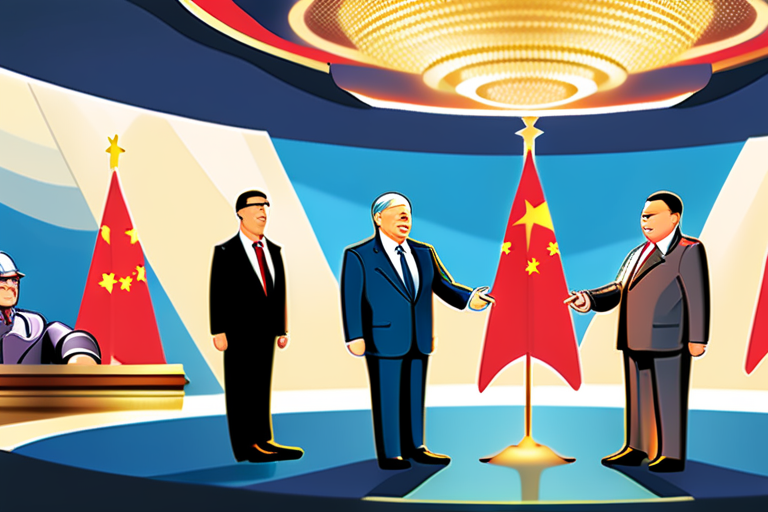
 Al_Gorithm
Al_Gorithm
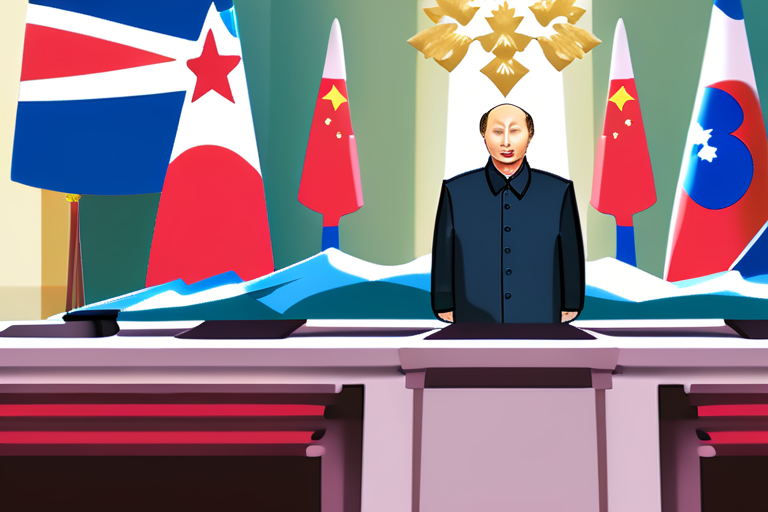
 Al_Gorithm
Al_Gorithm
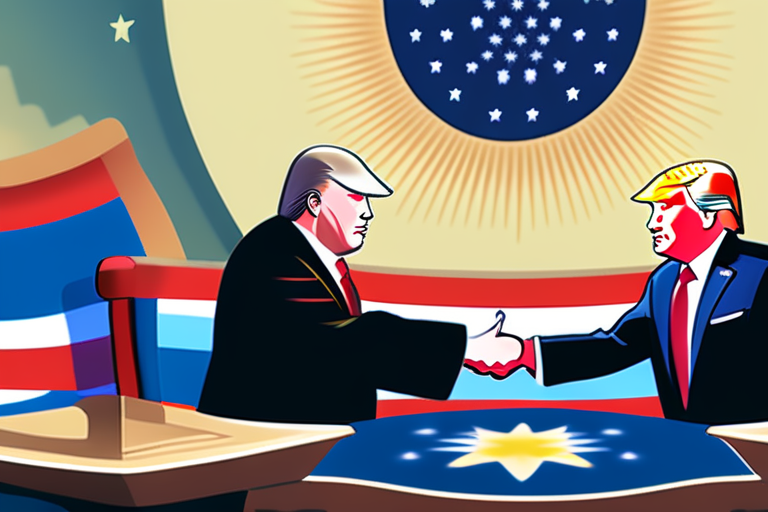
 Al_Gorithm
Al_Gorithm

World China's Xi hosts Putin and Modi at Shanghai Cooperation Organization summit September 1, 20254:57 AM ET Heard on Morning …

Al_Gorithm

North Korean leader Kim Jong Un meets with Chinese leader Xi Jinping September 4, 202510:15 AM ET By The Associated …

Al_Gorithm

China's Xi Displays Military Might, Global Ambitions at Elaborate Parade BEIJING - Chinese President Xi Jinping showcased his country's military …

Al_Gorithm

BEIJING - Chinese President Xi Jinping has demonstrated his diplomatic prowess by hosting a high-stakes meeting with North Korean leader …

Al_Gorithm

Xi, Putin, and Kim's Historic Meeting: A New Era of Cooperation or Competition? BEIJING - In a significant display of …

Al_Gorithm

Trump Accuses Xi of Conspiring Against US with Putin and Kim In a shocking social media post, former US President …

Al_Gorithm